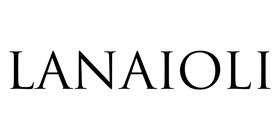Experts see a promising future for Merino sheep farming in Italy, thanks to a combination of tradition, innovation, and sustainability. Here are some key points emerging from expert opinions:
Sustainability and Animal Welfare
One of the most important aspects for the future of Merino sheep farming is sustainability. Farmers are adopting increasingly ecological practices, such as the use of natural pastures and crop rotation, to reduce environmental impact. Furthermore, there is growing attention to animal welfare, with techniques that ensure optimal living conditions for the sheep.

Technological Innovation
Technological innovation is playing a crucial role in improving breeding techniques. Experts emphasize the importance of advanced tools to monitor animal health and optimize wool production. For example, the use of sensors to monitor sheep body temperature and software to manage production data have become increasingly common.
Market and Demand
The demand for high-quality merino wool is growing, both nationally and internationally. This is due to increasing consumer awareness regarding sustainability and material quality. Experts believe that Italy can leverage this trend to expand the merino wool market, focusing on high-end and organic certified products.
Challenges and Opportunities
Despite the positive outlook, there are also challenges to face. International competition, wool price fluctuations, and adverse weather conditions are some of the main obstacles.
However, experts also see many opportunities, such as the increasing demand for sustainable and high-quality products and the growing interest in natural fibers.
A mix of tradition, innovation, and sustainability for Italian merino wool
In summary, the future of merino sheep farming in Italy looks bright. Thanks to a mix of tradition, innovation, and sustainability, Italian breeders are well positioned to face challenges and seize opportunities in the global market.
Merino wool will continue to be one of the most appreciated and demanded fibers, significantly contributing to the local economy and the preservation of the rural landscape.
Lanaioli has chosen to produce its garments in merino wool with 100% Made in Italy yarns coming from farms of Italian merino breeds such as Sopravissana, now endangered, but with interesting recovery projects underway for more sustainable and local fashion.







